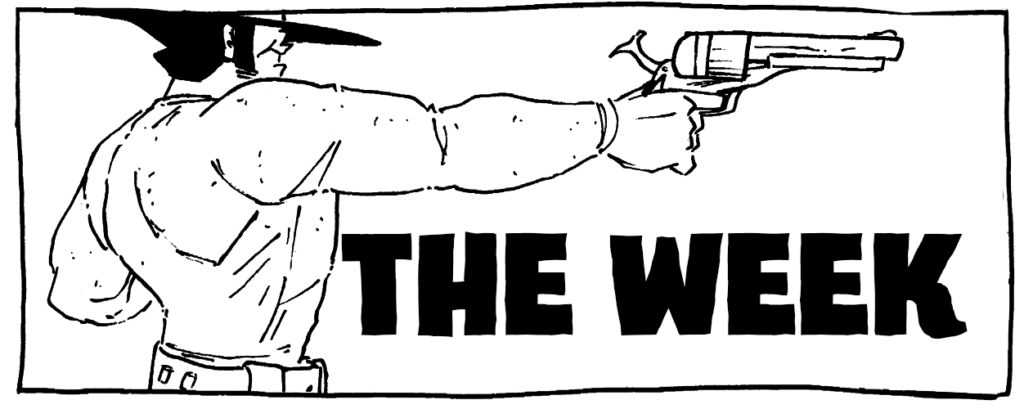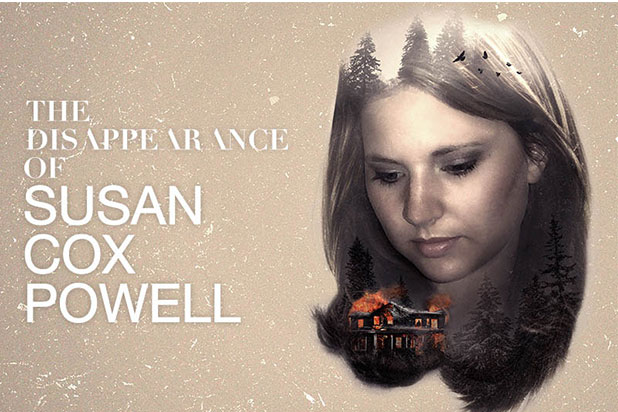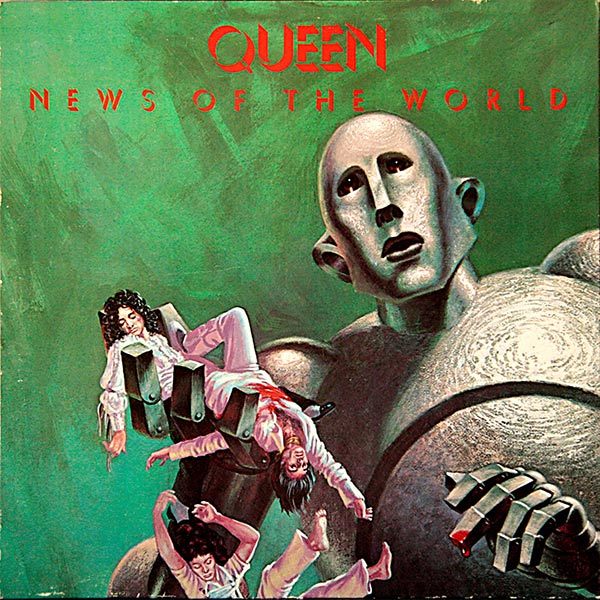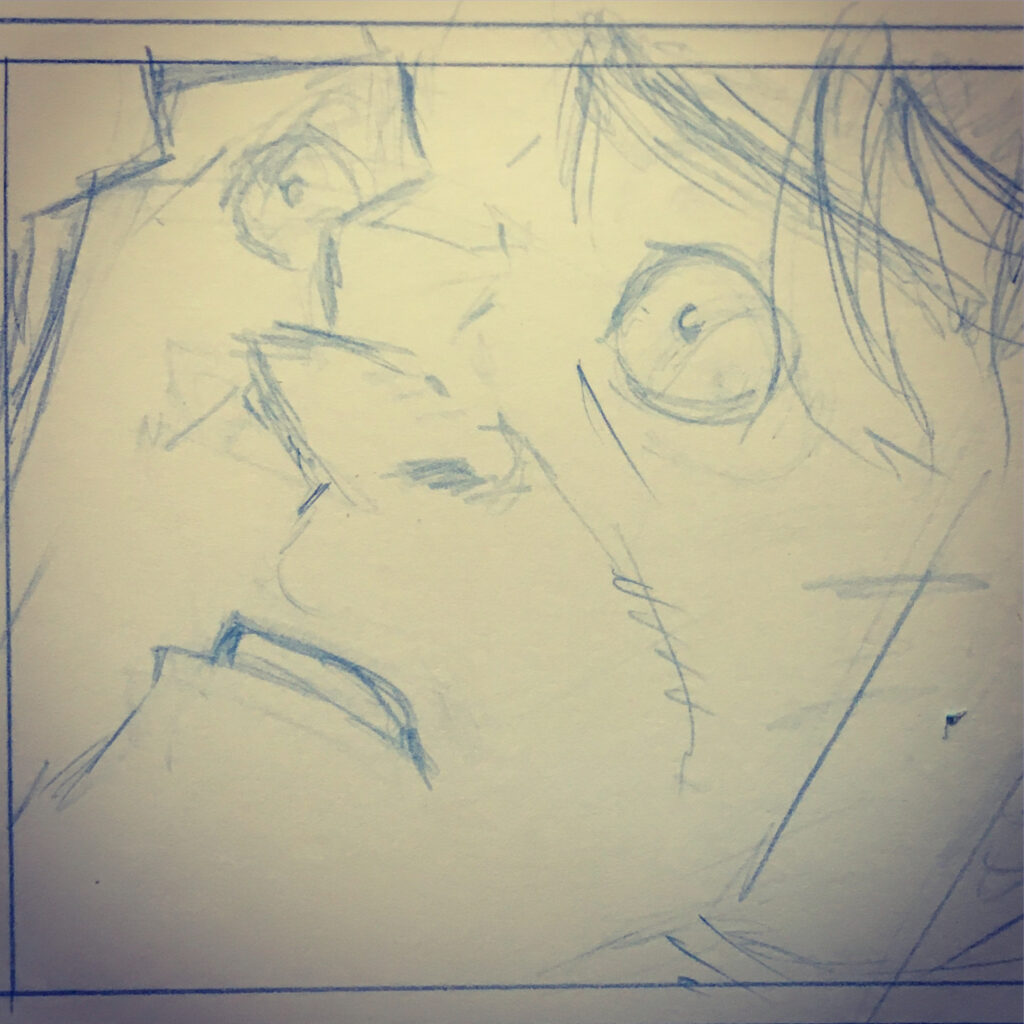The Week – 11 October 2019

WATCHING:

- The Disappearance of Susan Cox Powell (2019)
Not to bring it back to True Crime as representations of the genre are everywhere in every medium right now, but there is a fascinating division––a feeling that only grows as a person grows older––between the crime stories that happened before you were born and the stories you actually remember happening. To have professional documentaries and investigative books released that cover these stories pushes them from simply being weird news you followed for a week to being placed among the monolithic True Crime Stories you grew up hearing about.
I think the most blatant example of this (for me) was the first season of FX’s American Crime Story, titled The People vs. OJ Simpson, when they hired award-winning actors using real scripts to dramatize things I remember seeing on tv in high school. However, without fail, I keep getting older and the major cultural events I experienced as a youth are becoming history, so it’s something I need to start accepting and expecting.
I remember the 2009 disappearance of Susan Cox Powell in broad strokes more than anything. Something something Mormonism; something something someone knows something; something something no evidence. Honestly, until hearing about this documentary I had all but forgotten it. Experiencing it as it happened, it was never anything more than short stories or meandering interview segments on news programs. Any sinister or malevolent timbre to the story desaturates when put behind the gauzy, sterile lens of televised news.
Though the two-part 2019 Oxygen documentary has some presentational stumbles and quirks that don’t do it any favors, the Susan Cox Powell story is an astonishing story that proves how giving stories the time to settle actually allows for a more thorough, thoughtful, and, perhaps, productive investigation than trying to find the culprit when all the dust is in the air and everybody’s screaming.
If anything, it shows that what seemed like just another “whodunit” moment from the news at the time is actually as interesting, complex, and horrifying as any of the stories I grew up hearing about (again, thanks Mom).
LISTENING:

- Queen, News of the World (1977)
Since the beginning of summer, I tasked myself with a challenge. I always considered myself a fan of the band Queen, but (after being throttled a bit by harsh comments from a friend of mine on the internet) I realized my knowledge of them was really only based around their soundtrack to Highlander and their greatest hits compilations (and I grew up with one live album that I didn’t listen to as much as I should have).
So, in the face of ignorance, I decided that I would buy one Queen album a month, taking in the songs and sequencing on their own merit rather than just skip through for the hits.
Breaking my rules from the get-go, I skipped their first album and started with Queen II…and was unimpressed. It’s a very progressive rock style of album with a lot of good ideas but the songs seemed to be trying too hard and many outstayed their welcome (in my opinion). But, it was only one album and surely they would get better as we progressed.
In my research, the next album, Sheer Heart Attack, was one where people said the band really found their ’70s identity, so I was excited when I picked it up.
But, again, I didn’t like it.
At least Sheer Heart Attack had some good songs on it like “Killer Queen” and “Stone Cold Crazy”, but those were just the hits and the oft-covered tracks. The deep cuts didn’t really do anything for me. I started to get worried.
The next album was their big ’70s album, A Night at the Opera, with cuts such as “Bohemian Rhapsody” and “Love of My Life.” But, based on my experience so far, those could be the only two interesting songs on the thing. So, under the auspice that if I didn’t like A Night at the Opera then I would end my experiment, I picked it up.
And it is rad.
So, I eagerly picked up A Day at the Races the following month and, this month, I picked up News of the World. With each album, they’ve successively stepped away from their progressive song structures while keeping the aural experimentation alive––sometimes it’s successful (like in the aggressive stomping “White Man” on A Day at the Races) while sometimes it’s annoying (like the digital detritus that infests the middle of News of the World‘s “Sheer Heart Attack”)––and their songwriting has gotten tighter and undeniably more pop.
News of the World is most notable for hosting “We Will Rock You” and “We Are the Champions” as its opening tracks, but the entire album holds together as a testament to the talent of the four members of Queen that I frankly find inspiring. This experiment has shown me––in abbreviated time––the thing I love most about following the career of a band: growth. So far, Queen’s catalogue is an exercise in finding a voice, which is difficult when there are four distinct voices, all with distinct and varied things to say. For me, to say I can’t wait for next month is an understatement.
LONG JOHN, CHAPTER 4 UPDATE:

I’m almost done drawing the chapter. These last few pages have proven challenging in that they’re mostly visual storytelling without any dialogue, but stretching those muscles again have been fun, actually. So, I can’t wait to wrap up the drawing so I can get to the more mundane––but faster paced––part of coloring and lettering.

Discussion ¬